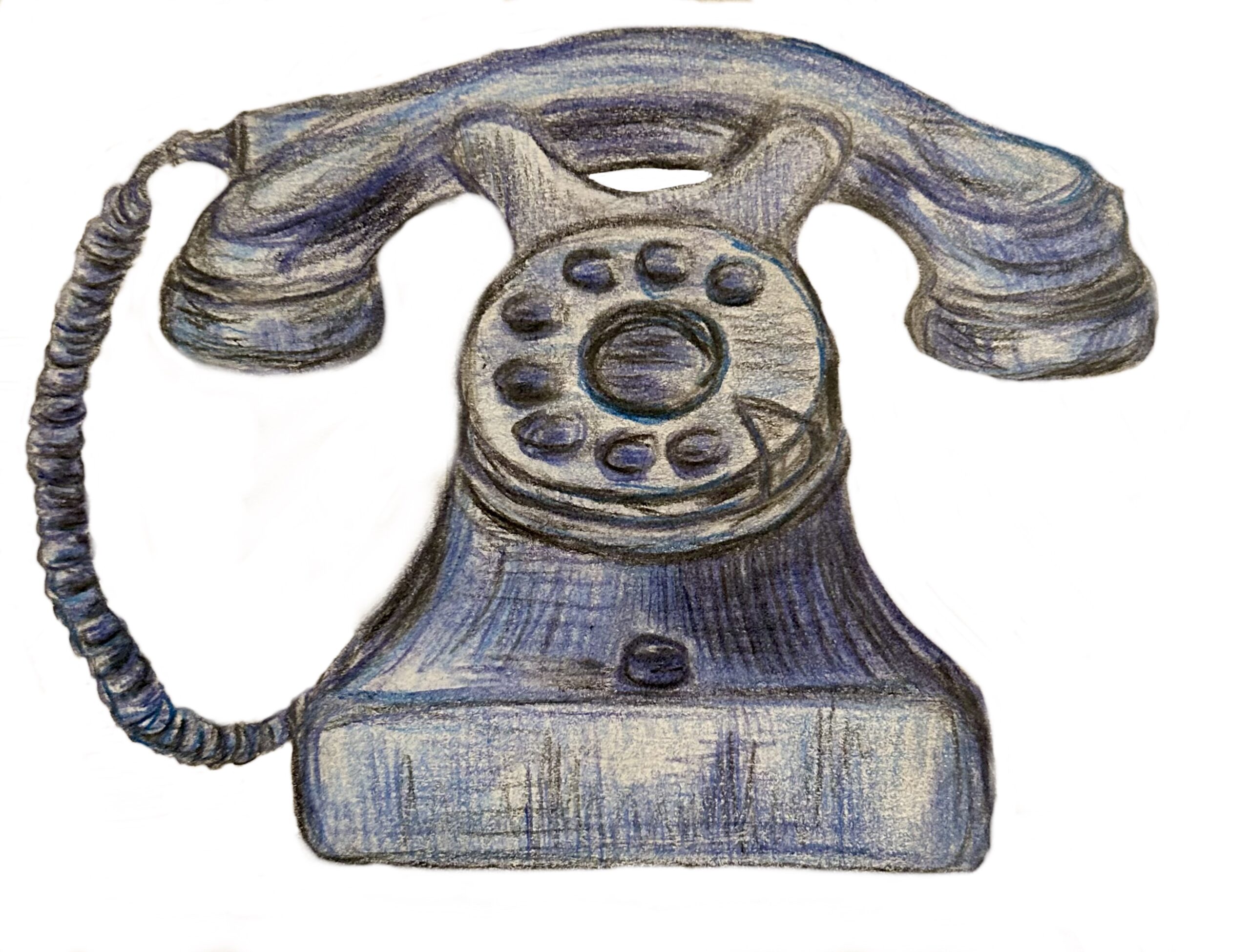Telling you what I mean
March 1, 2024
 Cabell Crowder
Cabell CrowderI call my mother at an average rate of once per week. Historically, I have called mostly to cry, sometimes to whine and once, during my sophomore fall, when the leaves on the trees by Reed House hung down like heavy drops of fire, to apologize for all my complaining, to tell her I was happy and to say that Bowdoin felt like home. She asked if I was tipsy.
Our recent talks, though still punctuated by my gripes and sobs, are newly befitted with a mission; the deadline is approaching, and I must decide what to be when I grow up. A few weeks ago, wishing to test the bounds of what I can say while still being considered a serious person, I told my mother that I wanted to be a writer. She sighed heavily; I took it back and told her it was not what I meant. We’ve since moved on to more legitimate options.
My mother says that we are a family of talkers. (For “talkers” you may substitute blowhards, windbags, babblers and if it is an election year or you are a hold-out for Myers-Briggs, campaigners.) I do not think my mother includes herself in this familial debate club, nor does she mean it as a compliment. Her distaste is understandable; I imagine that the penchant for discourse she finds half-charming (and occasionally banal) in her husband would be deeply unsettling to see from her child who decided, on moral grounds, that she would not be attending her school trip to The Bronx Zoo.
I inherited a predisposition for proclamation from my father, but I received a keen sense that words possess some extra-literal meaning from my mother. It is not so unique, I think, to be taught that what we say is tantamount to who we are. This message is summed up by Thumper the bunny, who has warned generations of children to keep their mouths shut rather than speak an unkind word. The broadly accepted maxim, which comes to us cutely in Peter Rabbit, is delivered with an archaic violence in Charles Perrault’s didactic “Diamonds and Toads,” a staple of my childhood. The Enlightenment-age French fairy tale features a beautiful (and kind) girl, blessed to spit up diamonds and rubies whenever she speaks. Seeking the same blessing, her cruel (and ugly) stepsister gets her comeuppance when she is cursed to emit toads and snakes in place of foul words.
Though I do stifle a gag when I remember the purplish guts of the garter snake I ran over on my bike one summer, I do not fear reptiles per se. It is the words they embody that worry me; I have found myself at the whim of my mouthy nature, and I don’t think I’m coughing up jewels.
To be cruel, in the way of the ugly sister, is to abuse language in the extreme, to throw words like knives and watch with satisfaction as they cut deep. Such violence, I think—I hope—requires intention. My issue is a bit more benign. If I turn to words as weapons, those missiles are likely to land off target. Wires are crossed, maps get misread and I wind up, with startling frequency, in the no man’s land between what I have said and what I mean.
I would understand the allegation that I enjoy the sound of my own voice, but I’d protest it. I am as aware of my predicament as I am unable to control it; though, I am trying. After especially painful incidents of placing my foot squarely in my mouth, I have promised to become a creature of silence. These vows of quietude have never lasted more than a few hours; they end with me red in the face, unable to keep my thoughts to myself, opening my mouth with a guffaw. Sometimes, I wince with fear that a cockroach (a totem of my pretension, and punishment for overuse of the word “Kafkaesque”) might fall out.
While I might uniquely possess a fear of spontaneously generated vermin, I think it is a common Bowdoin phenomenon to catch oneself speaking with conviction about something one does not fully believe. This combination ivory-tower-log-cabin is particularly hospitable to the post-adolescent armchair expert. I have imbibed too much of that super-sweet cocktail of half-knowing and over-confidence; my (pseudo-)intellectual intoxication and lack of verbal restraint cannot be sustained outside the campus gates.
This awareness of my expiring credentials is precisely what makes writing so appealing; faced with having to mean what I say, I would appreciate the opportunity for revision. With a pen and paper and bitten tongue, I might buy myself a press pass to my own life, all with the added benefit of becoming a more enjoyable dinner guest. My mother, to the credit of her practical wisdom, has warned me of the oncoming death of print, and seeing that snakes might be worth their weight in gold, ends our calls with a reminder about the LSAT.

Comments
Before submitting a comment, please review our comment policy. Some key points from the policy: